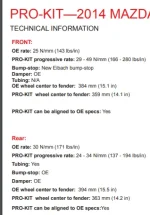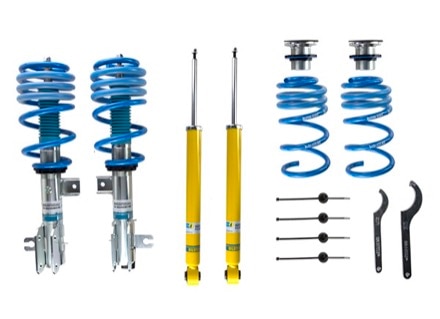My Mazda3 has a bad (leaking) shock, so I'm gonna replace it. While I'm at it, I was considering upgrading shocks & springs all around. I used to autocross high performance cars and still enjoy spirited driving and good handling. I've already installed a stiffer rear sway bar in this car, which improved the handling. Everything else on the car is OEM.
I'm familiar with coilovers, had a Panoz Roadster that came with them as OEM. They're great, got that car perfectly 4-corner balanced with my weight in the drivers seat. But coilovers may be overkill on a Mazda 3; maybe all it really needs is adjustable shocks and stiffer springs. Then again, perhaps coilovers will be nice even for this car. I don't want to lower it, just want to use the failed OEM shock as an excuse to upgrade the handling. Tirerack has a set of Bilsteins P14 my car for about $900.
Any advice?
I'm familiar with coilovers, had a Panoz Roadster that came with them as OEM. They're great, got that car perfectly 4-corner balanced with my weight in the drivers seat. But coilovers may be overkill on a Mazda 3; maybe all it really needs is adjustable shocks and stiffer springs. Then again, perhaps coilovers will be nice even for this car. I don't want to lower it, just want to use the failed OEM shock as an excuse to upgrade the handling. Tirerack has a set of Bilsteins P14 my car for about $900.
Any advice?


